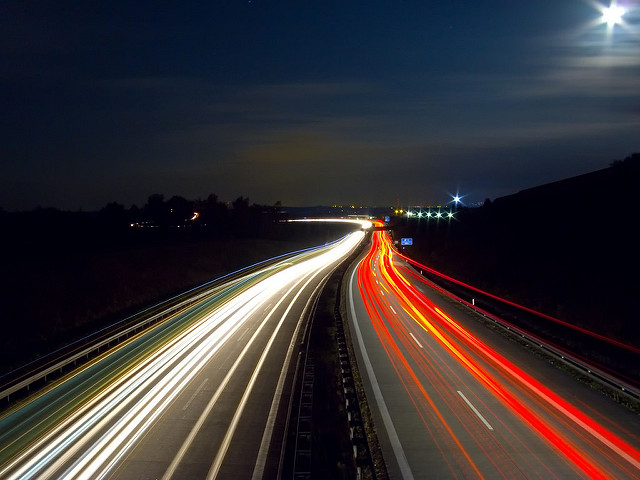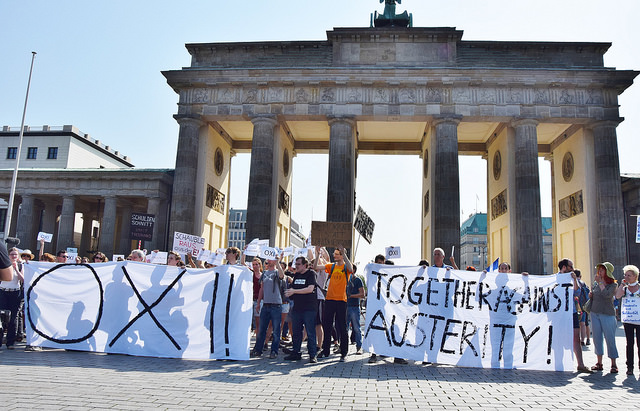My decision to attend and support the Edinburgh School Strike, like my arrival, was late.
As I left Waverley Station I listened intently for the sound of protest but the city gave up only its regular sounds; the beat and grind of petrol and diesel engines busy pumping out their invisible death, the whoosh of air brakes, the tourist chatter. Had anyone shown up?
Then I heard it. A roar that seemed to travel through the oldest part of the city from parliament to castle. I raced up the steep stone-stepped close that leads from the station to the centre of the Old Town, the muscles in my legs forming their own protest at this unfamiliar effort, my lungs tugging in traffic fumes even as my eyes began to register a flow of people.
Roaring and applauding
Protestors moved like a canalised river, rolling down the centre of the Royal Mile where stewards kept them from rebelliously overflowing onto the pavement.
Children and young people of all ages, some proudly holding their placards aloft and loudly shouting, others, more timid, holding their home-made signs almost apologetically, their lips unmoving as those around them chanted.
They wanted their voices heard but not necessarily audibly. Even this reticence disappeared when the roar started again from the front of the march. It travelled up the Royal Mile like a Mexican wave and almost everyone joined in.
Hundreds, possibly thousands, had already passed my arrival point by the time I got there, and hundreds, possibly another thousand more were still to pass. I began to applaud and then to join them.
We chanted: "Hey-hey, ho-ho, climate change has got to go." And then a new chant started: "No more coal, no more oil". This brought me up sharp. This bathed me in my own complicity.
Complicity
I thought of my coal-fuelled heating system at home. At the time of installation it seemed better than the dirty oil heating system it replaced but now it feels like a bad decision that we don’t have the means to amend.
Every day I wince at my guilt. And yes, I drive a car, had driven one that morning for the hour’s drive to the train station to get to Edinburgh.
How many decisions like this have we grown-ups made? These young people were laying my, indeed our, hypocrisy bare. And that, of course, is their aim.
I am of the generation that has grown up when scientists already knew that we were damaging the planet. I am of the generation who made endless bad, if unconscious, decisions in the name of economic growth and consumption.
I am of the generation which has been wholly complicit in the poisoning of air, sea, and soil. I am of the generation who looked the other way while we encroached on every habitat, cut down most of our trees, filled the oceans with plastic.
Visceral pain
These students were protesting against me and my generation. And I support them. They are absolutely right to demand action.
We wound our way round to the assembly point in the luckily sun-drenched green and terraced space beside the Scottish Parliament building.
The speakers addressing us included the teenage organisers, scientists and politicians. Among them was a young man called Dylan. At fourteen years old he had already felt the pain of this world more viscerally than most of the aging politicians he was raging against.
Dylan has been striking from school every Friday since March. He does this despite sometimes being alone and despite the Chronic Fatigue Syndrome that can make it difficult for him to move at all.
Dylan proved to be an emotive and powerful speaker. He told us how aged twelve he was already worried about the many injustices in the world – racism, sexism, poverty, homophobia, the all too familiar list goes on. But then Dylan learned about climate change and focused in on this, for even a twelve-year-old boy can figure out that none of those other injustices can be fixed without a home to live on.
Powerful lesson
Dylan described how, as he learned more about the terrible damage being inflicted on our planet and the predictions of catastrophe we were racing towards, he sank, he said, into depression.
What kind of grown-up world creates an environment that seems so hopeless that our young people sink into depression at the mere thought of it?
Dylan’s thoughts had tumbled round and round in his head with a relentless mantra-like quality– ‘someone needs to do something’. Then, at just fourteen years old, Dylan had the epiphany that has so sadly passed many so-called adults by. Dylan realised that he
is somebody. We are
all somebody.
This sensitive and eloquent young man was teaching us grownups a powerful lesson. His was not the language of division and hate we hear daily from our politicians, our media, ourselves.
He was not pointing a finger of blame. It wasn’t the fault of the other party. "We are all in this together," he said, "there are no borders in climate change".
System change
Dylan's plea was for unity and action. His was a demand for non-partisan system change. His was one of the most adult, reasonable and honest political proclamations I have heard in months, with the only exception being that other eloquent teenager Greta Thunberg.
Like so many of my generation, and those older and slightly younger than me, those present and absent on the day, I was being shown up as no more than a child hiding behind a cushion so I don’t see the scary stuff.
I was not a grown-up awkwardly attending a school strike. I was a child watching the march of the real grown-ups.
This post is republished from
The Ecologist. Read the original article
here.

